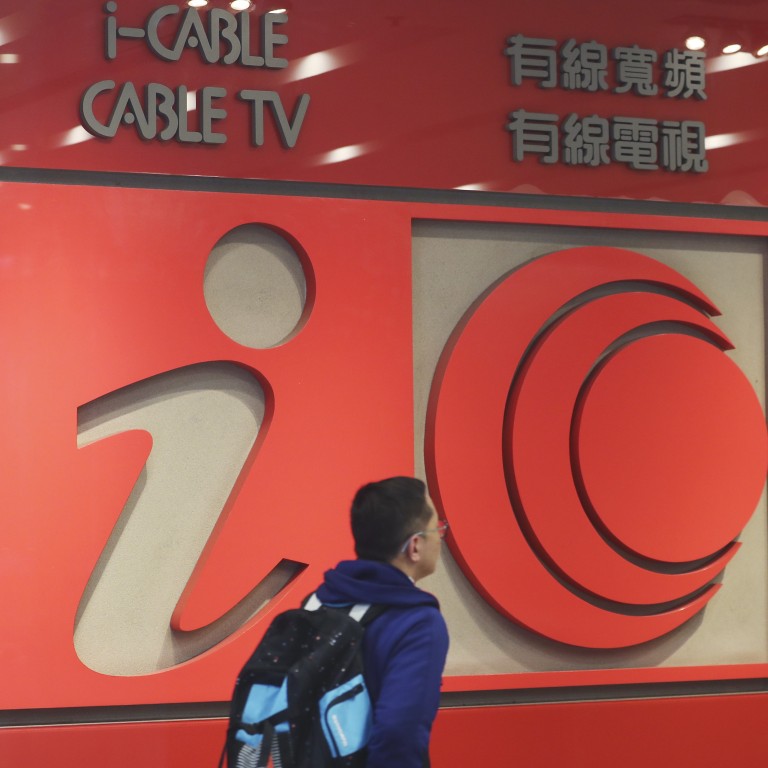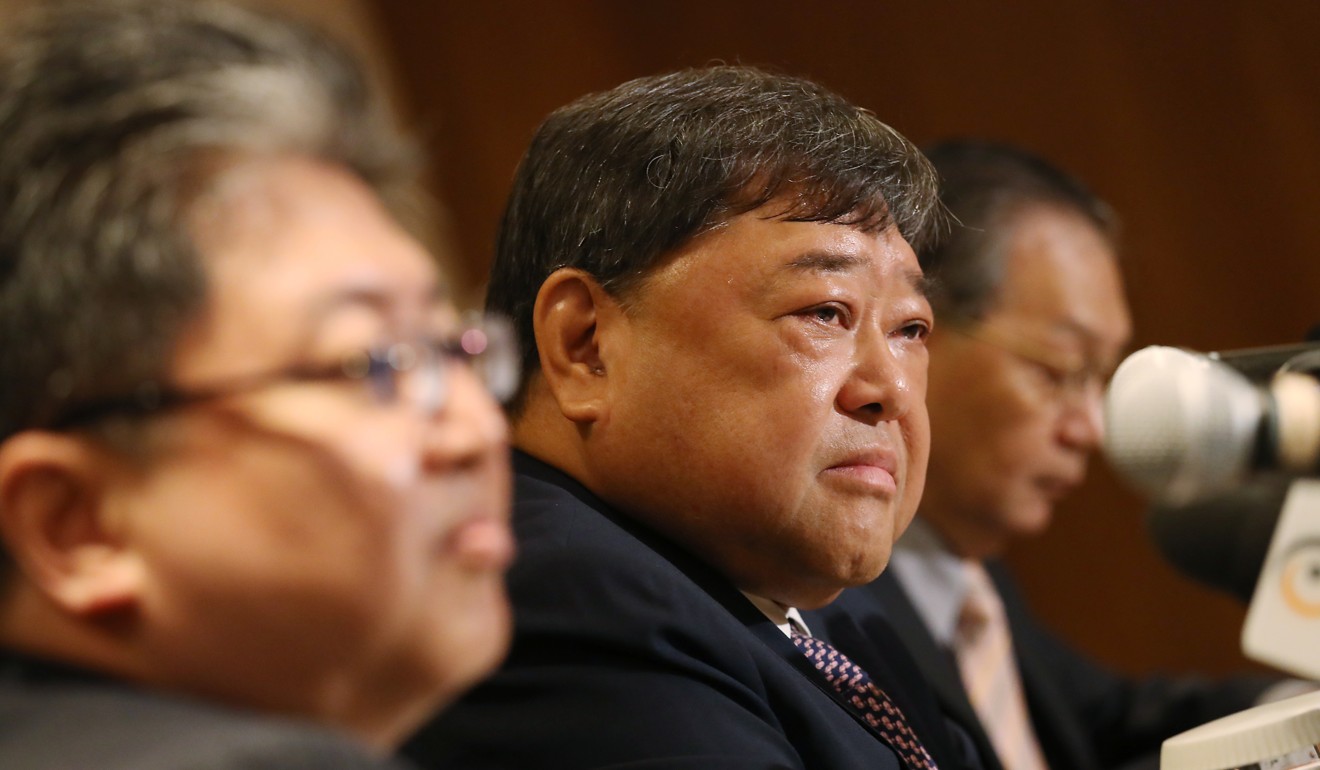
Embattled pay TV operator i-Cable makes another attempt to turn around a decade of losses with Guangdong network tie-up
- Analysts remain sceptical of Hong Kong pay TV operator’s latest attempt to return to profitability
- i-Cable will make TV shows with its Chinese partner relating viewers in the Greater Bay Area
I-Cable Communications, Hong Kong’s biggest pay TV operator, on Tuesday formalised a partnership with Guangdong Radio and Television (GRT) that will allow it to air programmes to the Chinese TV group’s customers.
But analysts are circumspect about the benefits of the tie-up on i-Cable’s bottom line, saying it is unlikely to yield any long-term “material” benefit.
Irene Leung Shuk-yee, chief operating officer of i-Cable, said that the deal with GRT also involves joint production of TV shows, exchange of programmes and forming a new media platform.
“The shows will pertain to the Greater Bay Area such as lifestyle and finance,” Leung said at an event attended by officials from the central government’s Liaison Office.
Hong Kong’s struggling pay TV provider, iCable, enters China through deal with Guangdong CableTV Network in bid to revive fortunes
GRT is one of the biggest cable television stations in China, broadcasting to more than 50 countries, reaching an audience of over 2 billion.
Asked about the impact of the partnership on the editorial independence of i-Cable’s newsroom, a vocal critic of the Hong Kong and Chinese governments, Leung said they would “continue to express editorial independence” and that there would be no interference in its operations.
This announcement comes after rival Television Broadcasts (TVB) issued a profit warning last week, saying it would post a net loss of about HK$200 million last week because of provisions for debts relating its investments in media company SMI Holdings. The company had laid off about 100 staff in June because of intensifying competition in Hong Kong’s media industry.

David Chiu Tat-cheong, chairman of i-Cable, said that the 68 million population of the Greater Bay Area, who mostly speak Cantonese, holds great potential for the pay TV operator.
“It is the same as the population of France or Great Britain,” said Chiu.
Chiu said he remained optimistic about Hong Kong’s television industry, adding that the company’s losses continue to narrow every month.
But industry insiders and market observers remain doubtful of its attempts to turnaround its fortunes.
Bruce Lui, senior lecturer at the School of Communication at Baptist University and former principal China reporter at i-Cable, said that the move will hardly have any “material” effect on the company’s revenues if i-Cable is not allowed to broadcast its commercials on the mainland.
“Revenue from selling shows is not very high,” said Lui. “[The collaboration] may sound great but it is not really beneficial.”
Kingston Lin, managing director of VC Asset Management, also doubted i-Cable’s ability to profit from the collaboration.
“It will take a very long time to get a material boost from it,” said Lin, adding that the Guangdong media group has its own shows and already cooperates with i-Cable’s rival ViuTV.
“It is different from TVB, which can broadcast in Guangdong. The news may attract some speculation, but it is difficult to see the share price rise further.”
I-Cable has made losses for 10 straight years since 2008, with the latest net loss for the six months ended June 30, 2018, amounting to HK$253.56 million. The losses widened 79.7 per cent year on year on the back of declining advertising and subscription revenues.
The company’s share closed unchanged at 10 Hong Kong cents on Tuesday before the tie-up announcement. It has remained below HK$1 since November 2007.

